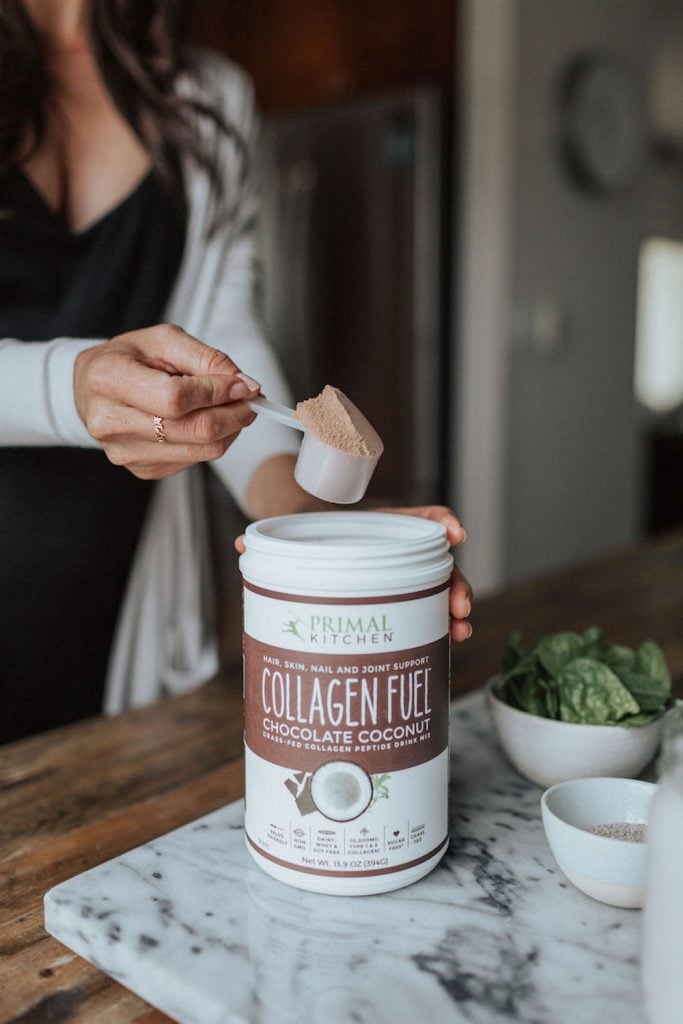
As a menstruating woman, do you often feel lethargic, bloated, and moody before your period starts? Is your PMS practically unbearable? If so, estrogen dominance may be knocking at your door. Unfortunately, this common hormonal imbalance affects many women. Along with PCOS, it’s a top offender. And while turning to caffeine for an energy boost—come day one of your period—feels like an easy choice, it may be doing more harm than good. Especially if you have estrogen dominance. But why is caffeine a concern? And what are alternatives for a natural energy boost? We’re exploring the relationship between caffeine and estrogen, as well as providing tips for managing your energy (without relying on espresso shots).
Featured image by Riley Reed.
In this article
- You and caffeine: a ritual or a reliance?
- Slow vs. Fast Caffeine Metabolizer
- Do women metabolize coffee differently than men?
- Caffeine and Female Hormones
- Caffeine and Estrogen: A Complex Relationship
- Caffeine, Estrogen, and Racial Groups
- Should you avoid coffee to balance your hormones?
- 5 Hormone-Friendly Alternatives To Coffee

You and caffeine: a ritual or a reliance?
Before we dive into all-things caffeine and estrogen, let’s back up. What is your relationship like with caffeine? And how does it influence your well-being? If you aren’t sure how caffeine impacts your body, start to take note. Specifically, how you feel when—and after—you drink it. Do you experience jitters, poor sleep, digestive woes, anxiety, or worsened PMS symptoms? Furthermore, consider why you drink it. Is a ritual or a reliance? If you notice adverse symptoms shortly after drinking coffee and/or you’re using it to compensate for undernourishing dietary habits, it’s worth getting honest about your coffee habit.
Slow vs. Fast Caffeine Metabolizer
For most of us, caffeine works its magic very quickly—reaching a peak level in the blood within 30-60 minutes of drinking. However, the remaining amount of caffeine typically lingers much longer. This is precisely why that afternoon iced coffee is a slippery slope. At any rate, you’re either a “fast” caffeine metabolizer or a “slow” metabolizer. This all comes down to your genes. As the type suggests, the fast group breaks down caffeine more quickly than the slow group. Regardless, coffee has its (research-backed) benefits! But when in doubt, have your cup of joe with supportive additions.

Do women metabolize coffee differently than men?
Speaking of metabolizing caffeine, do women digest it differently than men? Yes. And research proves it. Just as women metabolize alcohol more slowly than men do (and feel the negative effects after fewer servings), caffeine is no different. Women also tend to metabolize it at a slower rate. The female body is brilliantly designed to conserve as much energy from whatever we’re consuming. In essence, this means that our bodies are built to retain fluids for much longer—and to metabolize the chemicals contained much more slowly. In part, we have higher levels of estrogen (than men) to thank for this.

Caffeine and Female Hormones
The link between caffeine and hormones is nuanced. It’s not as black-and-white as drinking caffeine or abstaining, completely. That said, observational studies find a correlation between caffeine and hormones. Meaning, there’s a link, but there’s no proof that caffeine, specifically, causes changes in hormones. While caffeine seems to increase cortisol levels—especially when combined with other stressors—it’s possible that some other behavior or inherent trait is responsible for the differing hormone levels. Think: inflammatory diet, poor sleep, high stress, etc.
Caffeine and Estrogen: A Complex Relationship
When it comes to hormonal balance, caffeine and estrogen have a complex relationship. In fact, if you’re trying to balance your hormones, caffeine may be a no-go. Research shows that it can increase estrogen levels. While caffeine is known to give you a quick energy boost, it can also disrupt your hormones, particularly estrogen levels. Estrogen, on the other hand, is a vital hormone for the female body, responsible for everything from reproductive health to bone strength. So, what happens when caffeine and estrogen clash? The body enters an estrogen dominant state—low sex drive, tender breasts, fatigue, etc.

Caffeine, Estrogen, and Racial Groups
Furthermore, caffeine appears to affect women differently by racial groups. For example, one study shows that higher caffeine consumption was associated with higher estrogen levels for Asian women. However, the exact reverse effect was found for white women—higher caffeine intake was associated with lower estrogen levels. In Black women, there was a slight rise in estrogen levels, but it wasn’t statistically significant. Ultimately, conflicting reports make it difficult for medical providers to accurately predict hormonal fluctuations. Regardless, estrogen levels differ in every woman and change throughout her monthly cycle.
Should you avoid coffee to balance your hormones?
This depends. First and foremost, what type of hormone imbalance are you dealing with? Estrogen dominance, low testosterone, a thyroid issue, PCOS, chronically elevated cortisol, insulin issues—or a combination of a few? Work with your healthcare provider to accurately diagnose your specific hormone imbalance(s). At any rate, caffeine can cause your body to produce extra cortisol. And while we need some cortisol, high cortisol levels can affect your body’s ability to regulate inflammation. Ultimately, most experts suggest avoiding caffeine altogether to alleviate hormonal imbalance symptoms.

5 Hormone-Friendly Alternatives To Coffee
Fortunately, there are plenty of alternatives to coffee that can provide a clean energy boost without the negative side effects. At the very least—if you can’t quit your morning coffee—drink it after you’ve had a blood sugar-friendly breakfast.
Green Tea. Green tea is a nourishing alternative to coffee. As is matcha! Both have caffeine and contain L-theanine, an amino acid that promotes relaxation and calmness. The combination of caffeine and L-theanine provides a smooth and sustained energy boost without the jitters associated with coffee.
Yerba Mate. This traditional South American drink contains a unique combination of caffeine, theobromine, and theophylline, providing a clean and long-lasting energy boost. Yerba Mate also contains antioxidants and other nutrients that can benefit overall health.
Kombucha. Kombucha is a fermented tea with a small amount of caffeine and a healthy dose of probiotics. Hello, gentle energy boost. Kombucha can support gut health and overall well-being.
Water. A bit boring, but dehydration can cause fatigue and sluggishness, so staying hydrated is essential for maintaining energy levels throughout the day. Drinking water can help boost energy and improve focus. Add your favorite electrolytes, fresh fruit, or herbs (like mint) to spruce up your hydration station.
Freshly pressed juice. Made from low-sugar fruits and vegetables, fresh juice can provide a natural and sustained energy boost. To maximize nutrient intake without a blood sugar rollercoaster, stick with more veggies than fruit and pair your juice with a side of healthy fats (avocado sprinkled with sea salt) or protein (hard-boiled egg, turkey roll-up, Greek yogurt, etc.).
The post The Unsexy Truth About Caffeine and Your Hormones appeared first on Camille Styles.


0 Comments